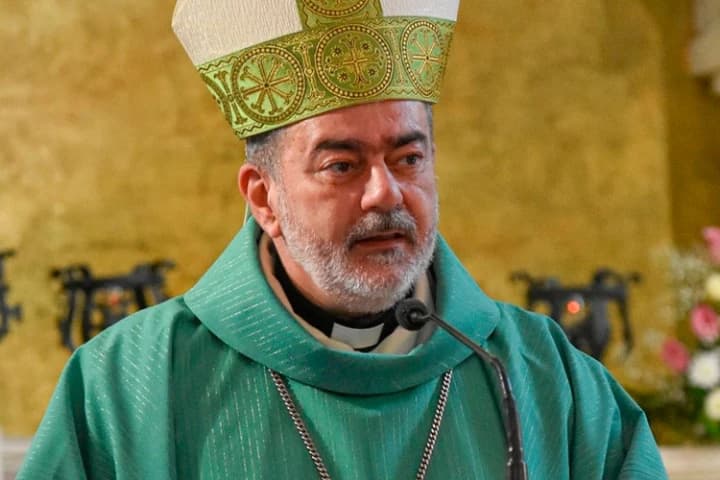Pope Francis accepted the resignation of a 59-year-old bishop in the pope’s native Argentina on Thursday, after just under two years in the leadership of an already troubled diocese.
Bishop Carlos María Domínguez of San Rafael in Argentina said his resignation was “for reasons of a personal nature,” but did not offer any further description.
“I want to ask for forgiveness for what I did wrong, for what I didn’t do and for what I didn’t know how to do,” Domínguez said in a communiqué, though he offered no specifics.
In an interview with ACI Prensa, the spokesman for San Rafael, Father José Álvarez, explained the request for forgiveness as something “anyone who leaves his place” would offer as a matter of course.
Domínguez, however, acknowledged he “can sense the perplexity that this news may cause,” among the faithful of the diocese. “[B]elieve me,” he wrote, “this decision causes me deep pain.”
Álvarez also told ACI Prensa Domínguez is no longer in the diocese.
Domínguez’s predecessor in San Rafael is Bishop Eduardo María Taussig, who resigned in 2022 at the age of 67, after an eighteen-year reign marred in later years by controversy with the faithful, ostensibly over the proper posture and more of receiving communion.
Also during Taussig’s later years in office, the Vatican intervened to close San Rafael’s diocesan seminary and send the seminarians to other formation houses in the country.
There had been tensions between the bishop and the seminary – seen as a hotbed of conservatism – for some time. When the seminary became a stronghold for opponents of COVID-19 restrictions mandating communion be received only in the hand, the matter came to a head and Rome stepped in.
“This decision [to close the seminary] was taken following the precise directives from the Holy See,” Taussig said.
Two years later, after prolonged protest and protracted tumult, Taussig was gone.
“[I]t’s public knowledge that the diocese has suffered a very significant crisis, which even led to the closure of the local seminary,” Álvarez – who was diocesan spokesman also in 2022 – told the diocesan paper, De Buena fé.
There has been significant turnover on the episcopal bench in recent years, all across Argentina.
Just last year, Archbishop Gabriel Antonio Mestre – who succeeded the man who is now Cardinal Victor Manuel Fernandez – resigned the leadership of the Archdiocese of La Plata in Argentina after less than nine months in the job. Pope Francis had plucked Mestre from the Diocese of Mar del Plata and appointed two men to that diocese in quick succession, neither of whom ever actually took up the office.
The first of Francis’s appointments to Mar del Plata – Argentina’s fifth-largest city and a popular beach resort – Bishop José María Baliña, until then an auxiliary of Buenos Aires – renounced the office less than a month after accepting it, citing struggles in recovery after ocular surgery and saying he “rushed” into accepting the job.
The second fellow, Gustavo Larrazábal, had allegations of harassment and abuse of power from at least one woman, reported by the local La Capital de Mar del Plata newspaper, which concerned behavior stretching over a period from 2007 to 2013.
The apostolic nunciature in Argentina claimed “full confidence” in Larrazábal – who maintained his innocence – and Francis ordered that Larrazábal remain in his post as an auxiliary of San Juan de Cuyo.
Argentinian Bishop Gustavo Zanchetta, who was one of Pope Francis’s first episcopal appointments in 2013, was found guilty by an Argentinian court in 2022 and sentenced to more than four years’ prison for aggravated continuous sexual abuse of two former seminarians.
As general secretary of the Argentinian bishops’ conference, Zanchetta had worked closely with the man who became Pope Francis, then-Cardinal Jorge Mario Bergoglio, who as Archbishop of Buenos Aires was president of the conference.
In 2017, Francis brought Zanchetta to Rome after accepting his resignation from the see of Orán for unspecified health reasons and created a position for him inside the Vatican’s sovereign asset management office, the Administration of the Patrimony of the Apostolic See (APSA).















